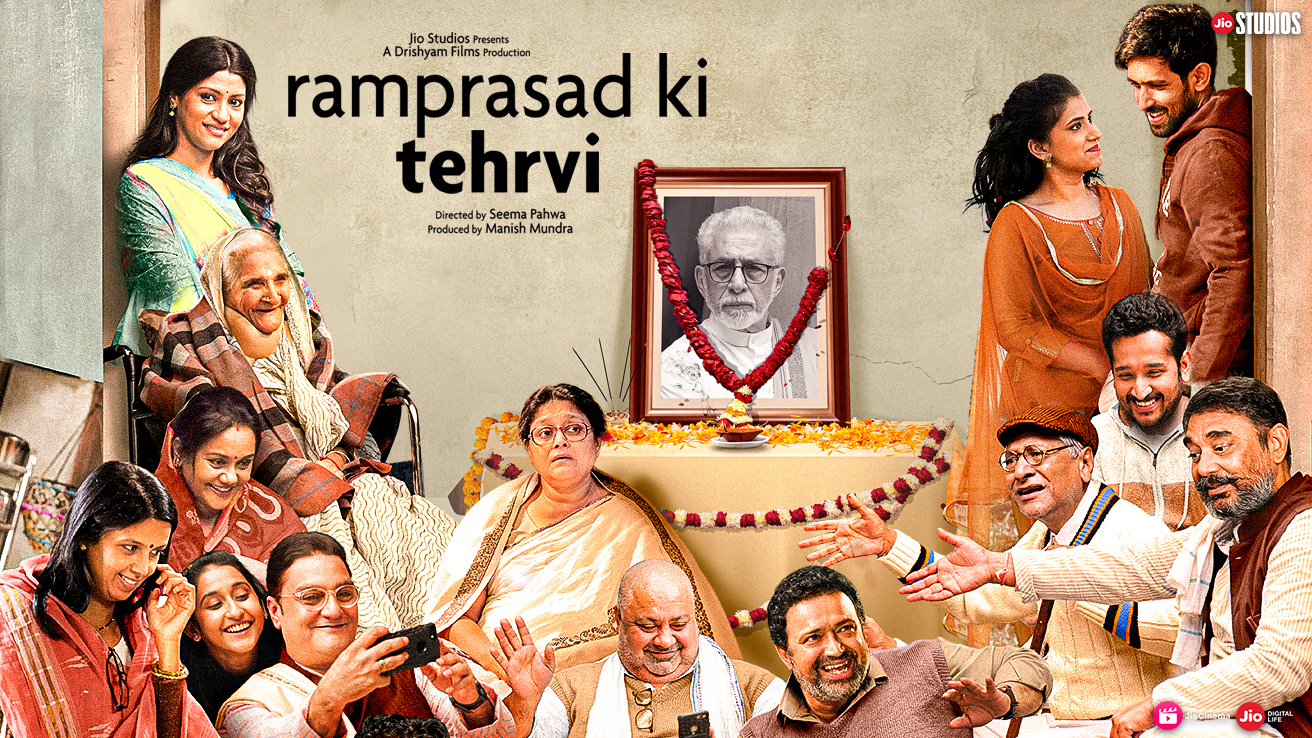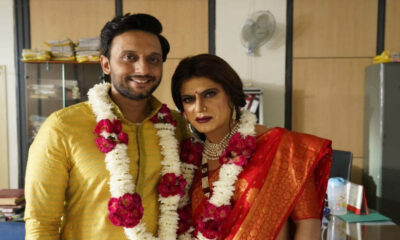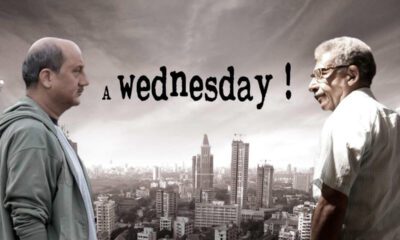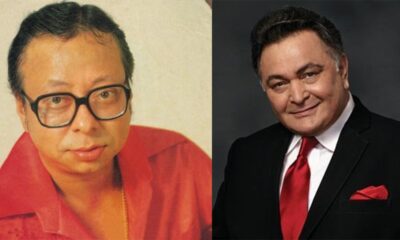Exclusive Premium Content
2021 in Review: 5 Female Debutant Directors Who Hit The Ball Out Of The Park

Though 2021 was an awful year for new actors, the year was surprisingly fecund for fresh female filmmakers. A look at the 5 female filmmakers who flew across the finishing line.
Seema Pahwa In Ramprasad Ki Tehrvi: What a wonderful way for Indian cinema to begin the year! Let me say straightaway that Ramprasad Ki Tehrvi was a very fine film, and a spectacular start not just to this year, but also to veteran actress Seema Pahwa’s career as a director. Her understanding of the basically selfish selfserving nature of humankind is so deep, and so bang-on that five minutes into the film I felt I was sitting awkwardly as part of Ramprasad’s grieving family, their sickening squabbles over tea and bathroom time, and later on, their bickering over their father’s property, all so lived-in so real it is hurtful even while it is amusing to the extreme.Some critics have commented on the large number of characters , and how difficult it is to figure out who’s who. Nonsense! We are for too long inured in spoonfeeding tactics. It is our duty and obligation to give a film our complete attention when it deserves it, to surrender to the cast of characters unquestioningly.Seema Pahwa’s writing is razor-sharp and crystal-clear. Even the smallest of characters have a life of their own.The domestic politics is never over-punctuated. It emerges from the deep creases and crevices of bereavement like pebbles from the bottom of a tranquil stream.
Most of the time, Ms Pahwa knows when to draw the line.The narrative pulls out of an argument, no matter how heated, before its gets too hot to handle. This is not to say that she leaves the characters and their grievances stranded or unfinished. The wise and articulate construct of the dynamics of bereavement makes plenty of room for mood shifts and yet there is a consistency and a continuity to the ‘family tragedy’, as defined once by Tolstoy. Lucknow where the rites of passage are held is treated not as a city of marvelous experiences but a mere tool in the hands of the people who live there.The director threads her way through the characters, Ramprasad’s genuinely grieving wife(Supriya Pathak, so stately and supremely immersed in the tragedy) and his six children: four sons and two daughters each played with unsurpassable scrupulosity by Manoj Pahwa, Ninad Kamath, Vinay Pathak, Parambrata Chattopadhyay, Anubha Fatehpuri and Sarika Singh. Each of these characters plunges into his or her part wholeheartedly unconditionally and non-judgementally. Since I haven’t seen much of Ms Fatehpuri’s work before she is a special revelation. The mercurial changes in mood are recorded with a casual grace that comes naturally to a director who knows her milieu only to well.Other stand-out performances come from Konkona Sen Sharma as the youngest son’s disgruntled wife and Vikrant Massey as the eldest son’s son. The two share a dangerous complicated relationship that could snowball into a sequel. I wouldn’t mind , as long Naseeruddin Shah returns from the dead. His strong presence is felt throughout this spirited vivacious gentle and occasionally vicious film(the drunken eldest son telling his brothers that he had seen his parents “doing it” will make you squirm) on death and its aftermath when every bereaved sits down to do the math.
Renuka Shahane in Tribhanga: Walking that lonely path of going against conventions, the women in Tribhanga are no cardboard feminists. These are people who are real with real problems, not afraid to bare their soul when the director calls ‘action’.Debutante director Renuka Shahane gets more than she had bargained for. Just like life, Tribhanga is somewhat off-kilter, a little askew, at times uneven and even patchy. But the story of three generations of women from one family,spirited, unorthodox, unfettered, holds together, moles warts and all. Tribhanga is a fiercely original film, though cinephiles would like to see distinct shades of Ingmar Bergman’s imperishable classic Autumn Sonata in Renuka Shahane’s striking debut film. But that, like much in life, is only an illusion. The fierce mother-daughter battle so indelibly passionate in Bergman’s film, is ignited here by the presence of Kajol .The fiercest actress on this side of Fearless Nadia and Geeta Bali, Kajol brings to Tribhanga a kind of unrehearsed ferocity that is at once intimidating intriguing and irresistible.Strangely there aren’t that many confrontation scenes between mother Tanve Azmi and daughter Kajol as there were between Ingrid Bergman and Liv Ullman in Autumn Sonata. Maybe Ms Shahane in her bid to escape a conventional conflict, went the other way in search of the deathly stillness under the drama of disengagement that defines the fiery Anu(Kajol)’s relationship with her celebrity mother Nayantara(Tanve Azmi), an author who couldn’t write a happy ending for her own life.
There is one major confrontational mother-daughter sequence where after being abused by her Russian husband(why Russian?) Anu bodily pushes her mother out of the door when she pays a sympathy visit. It’s a devastatingly PHYSICAL moment because when Kajol gets physical she really gets physical. Pulling out all stops, she gives one of her best performances in recent years.In contrast kid brother(Vaibhav Tatawaadi) a Krishna bhakt is a quiet gentle soul always trying to calm down his hyper-ventilating sister. It’s a study in contrasts that avoids looking doctored into the plot.More than her complex tangled relationship with her mother, it is Anu’s ongoing fencing with her mother’s biographer that had me fascinated. Anu hurls the choicest Hindi and angrezi abuses at the saintly biographer Milan, played with an aching sincerity by Kunaal Roy Kapur(who according to me is the most talented soul in the family). Kunaal plays the king gentle alpha male that is essential in all films about women protagonists who are victims of patriarchal abuse.Milan speaks shuddh Hindi and never uses strong language, no matter what the provocation. Anu(being Kajol) lets the expletives roll out like rotis at a roadside dhaba. I would like to see a whole film devoted to these two characters. Not that this one is short of lamb-like males. Maaniv Govil plays Kajol’s incredibly gentle partner who makes coffee for her(have you seen even one film about a supportive male where he doesn’t offer to make coffee for his beloved?) while her dances her Oddissi and hurls abuses at everyone who has the misfortune to be in her life.The most admirable part of Tribhanga is that the women are no saints or victims. They are flawed and therefore fabulous.At least two of them Tanve Azmi and Kajol are. The third Mithila Palkar as Kajol’s daughter hardly has breathing space in the plot with two older women shouting down all other voices. But Mithila too manages to leave a strong impact.
Manjari Makijani in Skater Girl: 10 minutes into the film,and I was convinced this was Slumdog Millionaire on a skating board in Rajasthan.Then 45 minutes later something magical happened. She is called Waheeda Rehman. I don’t know how or where this enchantress, now in the winter of her life, showed up as a doppelganger of Gayatri Devi,telling us why she would fund a skatepark in Rajasthan.We appreciate.I was half-way converted, though acutely embarrassed by the turgid benign-gora-log-inspiring-and-enlightening-brownfaced-kids subtext of the drama. There is a village in Rajashthan called Khempur where the scruffy kids in torn shorts and fading school uniforms get a chance to dream , when a pretty half-British-half-Indian full-on Mother Teresa reincarnation shows up, all muddy and weather beaten but full of beans.
Jessica(Amy/Amrita Maghera) shows up like a dimestore Florid Florence Nightingale.“Tooom yeh karrrr saakta hai,” she eggs on spirited teen-going-on-middleage Prerna(Rachel Sanchita Gupta, a natural, though the brown coloring could have been avoided as kids belonging to the lower castes are not always tanned). Prerna is well played by the debutante .But little Shafin Patel as her kidbrother Ankush is the real discovery of the film. The boy conveys all the acquired maturity and ingrained impishness of a male heir in an impoverished family who understands more of his sister’s pain than he should at his age.Many portions of the film are so touristy I felt I was watching a sponsored propaganda film on colonial superiority. What would we do if foreigners like Jessica and her friend Eric(Jonathan Readwin, Angel’s sidekick) did not show up to change the lives of disadvantaged rural kids?But then I have to admit by the end of it all , I was cheering and sobbing in a climax certainly inspired by Gurinder Chadha’s Bend It Like Beckham , when Prerna flees from her marriage mandap to participate in a skating championship where, hallelujah,the ethereal Waheeda Rehman shows up again. Now if she’s supporting the film, I am in.Besides the two main child actors the film has some really likeable actors like the chap who plays Jessica’s affable local guide and host Vikram(Ankit Rao).Ambrish Saxena and Swati Das are excellent as Prerna’s harried parents . But what was the need for a romantic side-plot where (low caste) Prerna is wooed by a Brahmin boy Subodh(Vinayak Gupta) who has the shiniest teeth since God invented Colgate.Skater Girl is effective when it avoids being schmaltzy and over-cute. When Prerna tells her mother that Jessica Madamji is from London the mother replies, “Yeh kaun sa goan hain?”Really? At the end we are told that the skatepark built in the Rajasthan village to shoot this film now stands permanently as a recreational nirvana for children in and around the venue.For this alone, I forgive the film its excessive cuteness. Besides, Waheedaji mentions that some day she will tell us her character’s back story.So I am looking forward to the sequel. But now I have to go. The skating board beckons.
Kaashvie Nair In Sardar Ka Grandson: With Neena Gupta and Arjun Kapoor playing the eponymous parts Sardar Ka Grandson promised to at least regale us with one of those endlessly endearing sagas of family ties… you know, like Prem Kishen and ‘Dadaji’ Madan Puri in the Rajshri classic Dulhan Wohi Jo Piya Man Bhaye or Salman and his grandfather Shammi Kapoor in Jab Pyar Kissise Hota Hai. Sadly—and I say this with a heavy heart—Sardar Ka Grandson generates as much chemistry between the Daadi-Grandson pair as fire and ice. Ms Gupta,otherwise such an accomplished actress gives one of her career’s hammiest performances as a sullen sulky Sadarni Rupinder Kaur (was the role written for Sushma Seth) who wants her dying wish to be fulfilled by her beloved grandson: she wants to see her ancestral home in Lahore.Yes, this is one of those steeped-in-nostalgia films about cross-border amity that drowns into its own pool of sweetened tears.It also revels in a plot that threatens to collapse under the double weight of coincidences and improbabilities.As far as improbabilities go try this : when Daadi can’t go to Lahore(she apparently insulted the Mayor of Lahore once at an Indo-Pak cricket match) her ancestral home is brought to Amritsar by a process known as structure relocation. No one said a building can be moved 50 kms by this cumbersome near-impossible process. But the brainwave hit this film’s team so hard that they just decided to go for it, disregarding the basic logistics and practical problems(we are talking about moving a two-storey building from not just one city to another but also from a country completely hostile to the other) hoping that the emotional sway of the idea would be so powerful that all skepticism about the sheer logistics of the main premise . would be swept aside.Regrettably no such miracle happens. For most of its 2 ½ hour length(way tooooo long!) the film remains more admirable for trying to implement a near-impossible idea rather than arriving at any satisfying closureAlong with the ‘grand’ Daadi-Pota idea with ailing Daadi and wailing Family plodding along from one saccharine absurdity to another, with the characters in ‘Lahore’ speaking to one another with every sentence prefixed with ‘Janaab’, grandson Amreek Singh has his own heart problems.As Arjun Kapoor’s love interest all Rakul Preet Singh has to do is be there for her man. So much for the empowered female protagonist. While one female heroine in this film thinks emotional manipulation at an autumnal age is cute, the other thinks following her man around after he has repeatedly taken her for granted is some kind of a salvation for the post-feminist modern woman.The performances range from the hammy to the clammy . Redoubtable actors like Kumud Mishra(playing the aforementioned mayor), Soni Razdan(wearing one sourpuss expression throughout the prolonged narrative) and Divya Seth(reduced to playing a pumped up nostril-flaring prop) seem lost in the fumes of bonhomie that swirl in this dreary fairytale confection.Aditi Rao and John Abraham play the younger versions of Neena Gupta and her husband in Lahore.As absurd as that may sound,this is easier to believe than the whole idea of a home being translocated from Lahore to Amritsar.For a first-time director Kaashvie Nair has some fresh ideas.All she has to do next time is to make sure the ideas are rooted to at least a semblance of credibility . We know faith can move mountains. But this is ridiculous.
Diya Annapura Ghosh in Bob Biswas: Young debutante Diya Ghosh’s film is a puzzle of a film. The killings aren’t meant to be funny(they never are). But some of them are so incongruous with the mood of the moment that one can’t help laughing at the sheer absurdity of it.At heart, Bob Biswas is a very sad film. It is about dangerous attention-arresting drugs, second chances,sexual harassment at work ,pesky neighbours , chowmein sellers with violent skills and homeopathic medicines. It is the story of a middleaged man with a receding hairline and a chance of rehabilitation to match the hairline, trying hard to heal old wounds.Abhishek Bachchan with his bewildered expression and bemused responses to the world around him, is the pitch-perfect Bob Biswas. Murderously innocent , hopelessly lost in a Kolkata he abandoned many years ago. Now he reclaims a city , a life and a family that have moved on.With tragic consequences.The family, though, is not quite the hiccup that Bob can wish away. Chitrangda Singh as Bob’s wife is mysteriously unobtainable. The tender moments between Singh and Bachchan , beautifully subdued and silken, reminded me of an old Prakash Mehra film Haseena Maan Jayegi where wife Babita isn’t sure whether her war-returned husband is her husband or his twin brother.You wish Bob would find his mojo again. But life is never kind to those with a dark past. Nemesis catches up with Bob in ways that are most unexpected and brutal. Sujoy Ghosh’s screenplay owes its tone of savage grace to Korean cinema where awful things happen to good people whose lives spin out of control.You want good things to happen to Bob, partly because he is played by the convivial Bachchan. More to the point, Bob’s killings are so bereft of malice. He pulls the trigger because…well,he has to. The narrative is nubile in its expressions of love and violence. Past transgressions and present atonement.As in Sujoy Ghosh’s Kahaani, Kolkata in Bob Biswas is captured in all its bustling glory. Thankfully no Durga Puja shows up during the course of the plot.The casting, both big and small, is impeccable. Specially outstanding are veteran Bengali actor Paran Bandyopadhyay as a homeopathic medicine dealer with deadly secrets and Purab Kohli as a slimy drug dealer who belts out R D Burman’s Duniya mein logon ko in both RD and Asha Bhosle’s voices. Newcomer Samara Tijori has an important role as Bob’s stepdaughter.She is a confident debutant .Bob Biswas appears deceptively tranquil on the surface. As the deep disturbances bubble to the surface we know what Bob Biswas doesn’t. There are no second chances in life .








